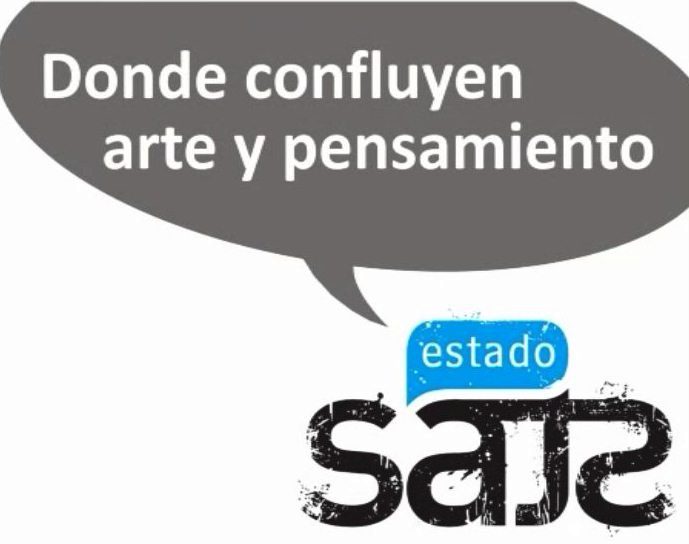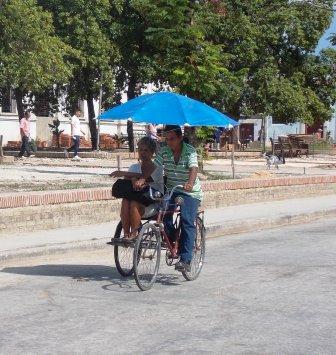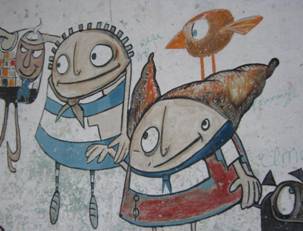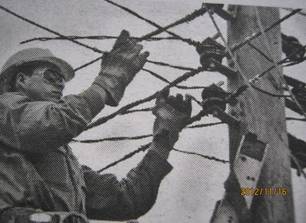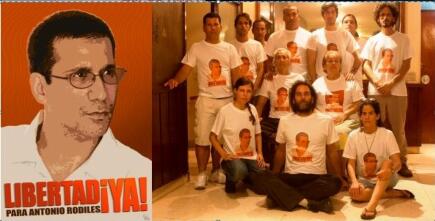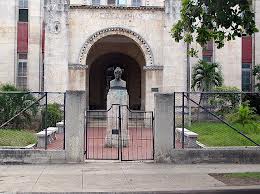At first glance, it would seem that nothing changes in Cuba. The system seems to gently continue down its inexorable march toward a crash that, nevertheless, doesn’t seem to ever arrive, just like the future promised by the defunct revolution. People continue to do everything related to the three national occupations of the highest priority: subsistence, illegal activities and emigration, mired in a riverbed of static appearance in which each side is trying to achieve its own goals, as if they were independent of each other… As if they actually were.
During the past four years the Cuban government has established the methodology of making up time by wasting it. Perhaps this has been the only political contribution of the General-President: a formula that is based on the accumulation of experiments emanating from a group of reforms and counter-reforms designed to create the expectation of economic changes without essentially changing anything, while time passes and circumstances continue to deteriorate.
The closest thing to a government program in recent decades was endorsed in a few guidelines few had faith in and that no one seems to remember (including General R. Castro himself), whose “implementation” has turned into some incomplete and inadequate aberrations, such as the distribution of leasehold land to agricultural producers, the granting of licenses to the self-employed, the approval of sales or the donation of private homes and cars, and the expansion of the use of cellular phones, among other stunts. The most recent and spectacular official scripted act has been, without a doubt, the so-called “migration reform”, a kind of myth that has taken hold over large sectors of the Cuban population, eager to emigrate, a trick whereby the government passed the ball to the opposing field: starting January, 2013, ordinary Cubans who behave will be able to travel without requiring the humiliating exit permit. Instead, they will just have to apply for an extremely expensive passport. After that, it will all depend on the overseas destination conditionally extending a visa. Skill and ineptness combined into yet another perverse hand at a balancing act without giving up control.
The giddiness that such a wealth of “change” should generate in a country whose characteristic permanent hallmark has been its resistance to change had barely a brief effect. While some journalists and foreign visitors think they see a sign of progress for Cubans in the official measures and the numerous street kiosks and carts, or an opening leading to the Island’s democratization, the fact is that there have been no real changes resulting in the improvement of life, the increase of the people’s capacity for consumption, or in palpable economic growth, not to mention the rights issue. The brief bubble of hope of early kiosk entrepreneurs has faded in the face of reality: prosperity is a crime in Cuba.
This is reflected, for example, in the fact that agricultural production is still insufficient because of the many obstacles imposed on the peasants (including defaults on contracts by government entities, or the continuing delays in the same, bureaucratic obstacles, lack of guarantees to growers, the shortage of materials, etc..), while the proliferation of self-employed sellers engaged in the marketing of these products, far from bringing about a decline in prices of agricultural products — as would occur in a in a healthy and normal market — has caused a disproportionate rise in prices, shrinking the people’s purchasing power, especially of those in the lower income brackets. The formula is quite simple: about the same amount of goods and consumers, plus an increase in the number of sellers, results in an out-of-control rise in prices in a country where the State is unable to even meet the most minimum requirements of the more fragile and dependent sector of the population, while wages and pensions are purely symbolic.
The issue of house sales is one of the more sensitive, due to the critical state of the housing market, as hundreds of thousands of families do not own their own homes. While it’s true that now those who own property may sell their homes, the difficulty consists in that few Cubans who do not have a roof over their heads have the means to acquire even the most modest apartment, though, compared with home prices in other countries, Cubans may, for the most part, be considered “moderate”.
A similar picture is presented in the rest of the “liberated” activities in virtue of the so-called government reforms. In fact, each “liberalization” brings with it the implicit increase in the cost of living and extends the schism between the nouveau riche and the dispossessed, which is proof that the problem of Cuba lies in the very core of the system. Nothing will change as long as they don’t change the principles underpinning the regime. Consequently, the government won’t be the one that will promote changes that the country needs, because changing what needs to be changed would mean the downfall of the regime.
Though this is a simple enough principle to explain, both the failure of the so-called Cuban socialism, strengthening of state capitalism established by the same class and the same “communist” subjects, architects of the national aberration for over half century, as well as the continuing and deepening socio-economic crisis, there is a kind of delicate sustained equilibrium in certain key factors that have prevented a social explosion, among which the following are significant: the state of permanent poverty which glaringly limits the expectation of great masses, who prefer escapism or survival rather than taking the risk of confronting the regime or of –- at least — not making things easier for the government; the lack of civic culture of the population; the still lack of development of independent civil society groups and their limited –- though growing– social influence; the use of repressive forces to harass any manifestation of freedom, and the monopoly of the media and communication by the government.
Nevertheless, such equilibrium in an existence of supersaturated frustrations could tumble at any given moment. Sufficient for one component to exceed its limits for the landscape to be transformed, especially considering that the discontent is growing and the long contained frustrations are a depth charge in a society biased by fractures and inequalities. It is not only the steady growth of internal dissent and of other sectors that criticize the government. Migration, corruption, illegal activity and all expressions of escapism — including apathy and pretense — are all forms of dissent that now dominate almost the entire Cuban population, a fact that the government is aware of and seeks to control by applying the precision of the repressors: political persecution to civic activists by the minions of the so-called Section 21; economic persecution of producers and traders through corrupt inspectors of the Comptroller.
The growing frustration on the Island is the seven-headed Hydra lurking between dark crevices of a structure that stands on miraculous static, and whose balancing should, right now, be the General’s utmost concern.
Note to readers: As you may have noticed, I am making changes to this page little by little. I hope you forgive some slips due to my faulty connectivity (which slows down the process of updating the image in the new template), compounded by my lack of mastery of the technology. Anyway, I’ll keep updating the posts at least once a week … Don’t give up on me. Thanks.. Hugs.
Eva-Miriam
Translated by Norma Whiting
November 19 2012

